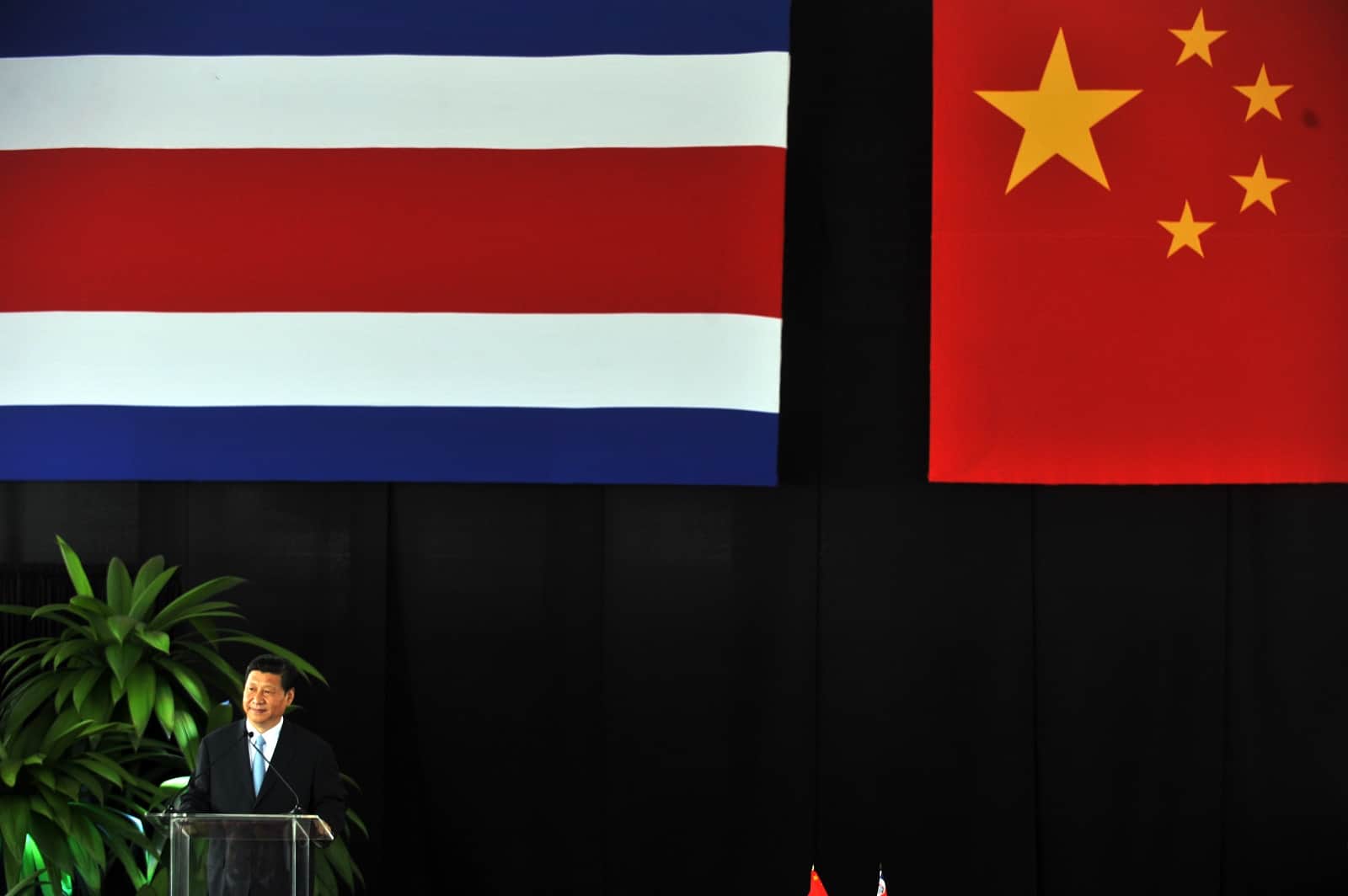Part of the intense diplomatic war between Taiwan and China is being fought in Latin America: Honduras is the latest country to disassociate itself from Taipei to link up with Beijing, a setback for the Asian island that also undermines the influence of the United States in the region.
Paraguay will be the next battleground, as it holds presidential elections at the end of April. Opposition candidate Efrain Alegre has said that if he wins he will reevaluate relations with Taiwan.
Of the 13 states in the world that maintain relations with Taipei following Honduras’ decision, seven are from Latin America and the Caribbean: Guatemala, Belize, Paraguay, Haiti, St. Kitts and Nevis, St. Lucia, and St. Vincent and the Grenadines.
In addition, the Vatican, Swaziland in Africa, and the Marshall Islands, Nauru, Palau and Tuvalu in the Pacific.
Taiwan’s President Tsai Ing-wen will visit Guatemala and Belize this week to try to prevent them from following in the footsteps of Honduras and Costa Rica (2007), Panama (2017), El Salvador (2018) and Nicaragua (2021), which broke with Taipei under pressure from China.
“We are facing a geopolitical recompositing of the world”, which “is no longer unipolar, but multipolar”, and China “is one of the imperial poles that is entering the region not only in Central America, but in all of Latin America”, said the Honduran academic Zoila Madrid, recently retired from the National University.
She believes that Honduras’ decision is a blow to Washington, as it has always seen it as a loyal ally.
“Honduras plays a role not only economically, but geopolitically, because the United States has always counted on Honduras geopolitically and militarily, in fact Honduras has seven U.S. military bases,” Madrid stresses.
Taipei, however, places more emphasis on “quality than quantity” of its diplomatic relations, explains Sung Wen-ti of the Australian National University.
“A strong and reliable partnership with other countries (such as the United States or Japan) is more important than looking at the number of countries that formally recognize Taiwan,” the analyst said before Tegucigalpa severed ties with the island.
Unique in South America
Latin America has been the scene of diplomatic wrangling between China and Taiwan since they separated in 1949, following the Chinese civil war.
Beijing regards the island of 23 million inhabitants as a rebel province, which it hopes to regain one day even by force. And under the “One China” principle, it does not allow any country to maintain diplomatic relations with Taipei at the same time.
Next in the dilemma will be Paraguay, the only one in South America to recognize the island.
However, “it is very difficult for Paraguay to establish diplomatic relations with China, although it cannot be ignored that there is a great deal of political pressure” and “the ground has been prepared in favor of China”, says former Paraguayan Foreign Minister Eladio Loizaga to AFP.
Something similar is the opinion of analyst Héctor Cristaldo: “I do not believe that the opposition, if it wins the elections, will be able to change the diplomatic ties maintained with Taiwan. I cannot imagine a president of Paraguay in such a scenario”.
Do as I say, not as I do
Honduran sociologist and columnist Pablo Carías underscores the contradiction of Washington criticizing countries that are linked to China despite the fact that it also has diplomatic and economic ties with Beijing.
“The United States is recommending to us not to establish relations with China and yet they have relations,” implying that it is following the policy of “do as I say, but not as I do,” Carías said.
Beyond the setback in Honduras, Taipei now has greater “international visibility” than before, being mentioned in joint statements at the G7 and other multilateral fora, says Sung Wen-ti, an expert in Taiwan studies at the Australian National University.
“It is understandable that Taiwan feels a bit sad” about Honduras’ decision, but the island “assigns priority” to relations with “leading” countries in the world, such as the United States, Japan, Australia and Europe, he said.
Moreover, “Taiwan has been playing an increasingly prominent role in this global strategic rivalry between the United States and China. Taiwan is to this day the strongest liberal democracy in the Chinese-speaking world” and “has a very strong symbolic importance in this value-based narrative or alignment between the United States and China,” Sung say






